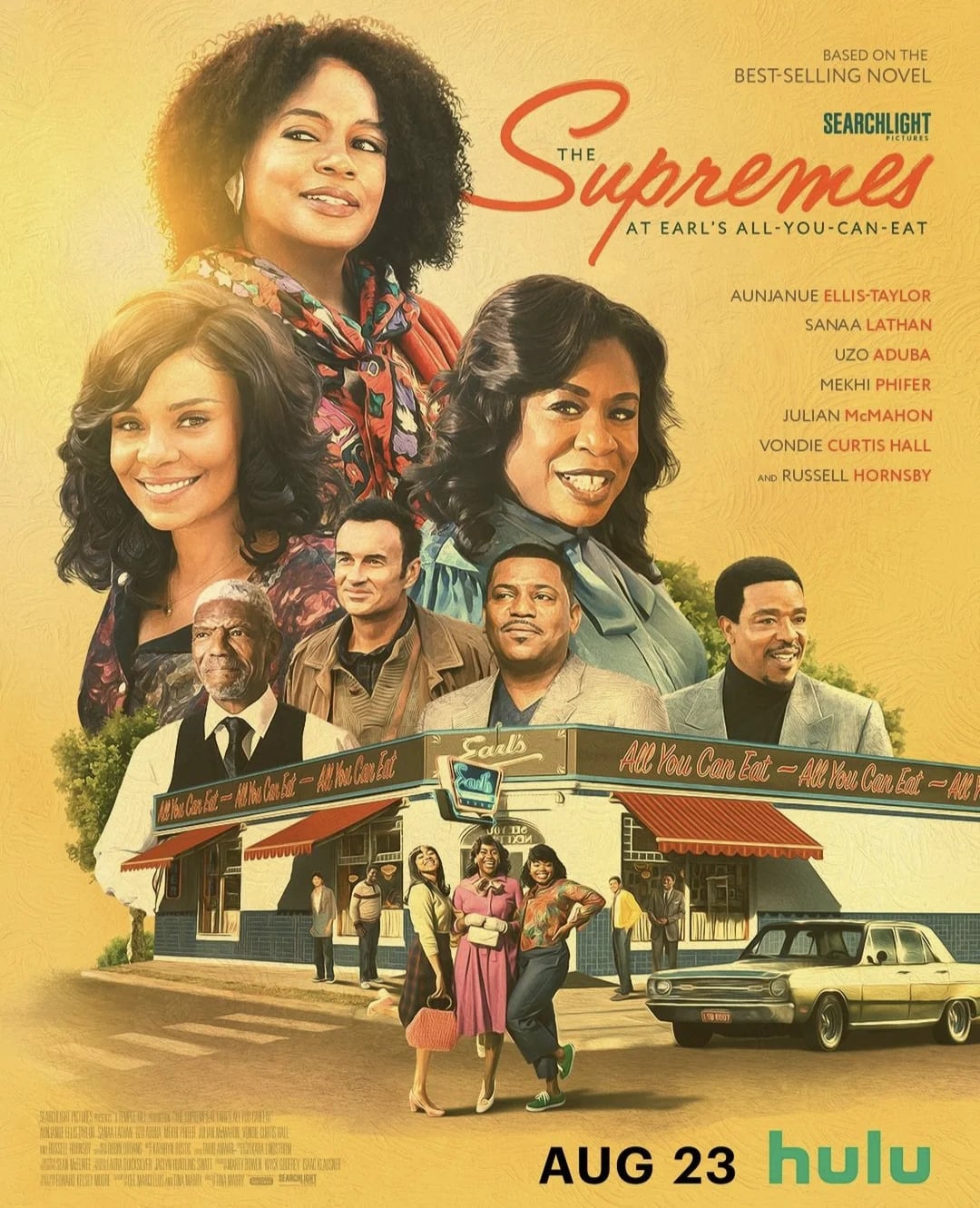
- Starring
- Aunjanue Ellis-Taylor, Sanaa Lathan, Uzo Aduba
- Writers
- Gina Prince-Bythewood, Tina Mabry
- Director
- Tina Mabry
- Rating
- PG-13 (United States)
- Running Time
- 124 minutes
- Release Date
- August 23rd, 2024
Overall Score
Rating Summary
With a title as long-winded and diner-centric as The Supremes at Earl’s All-You-Can-Eat, one’s first instinct upon encountering Tina Mabry’s latest film may just be a flashback to one of Robert Altman’s unsung classics, Come Back to the 5 & Dime Jimmy Dean, Jimmy Dean. As Altman’s film explores the lives of the women at its centre within the walls of its titular variety store, revealing layers to their pasts and intersecting hardships, it’s not inconceivable to draw a strained (but not entirely broken) link to Mabry’s adaptation of Edward Kelsey Moore’s 2013 book. But where Altman and playwright/screenwriter Ed Graczyk opted to confine their subjects to a single location in which to relay entire lifetimes of heartache and tragedy, Mabry and co-writer Cee Marcellus instead use their titular All-You-Can-Eat as a smaller nexus point spreading out towards far bigger character threads, touching base there only in infrequent bouts. The result is a film with a genuine interest in the greater lives of its lifelong friends, but perhaps also one that spreads their hardships too thinly to make the weight of their camaraderie register.
Odette (Ellis-Taylor), Clarice (Abula) and Barbara Jean (Lathan) have been inseparable since their teenage years. Collectively referred to with affection as “The Supremes” (after the famous Motown girl group), the squad regularly frequents Big Earl’s All-You-Can-Eat dinner as they go through their day-to-day lives, championing each other’s triumphs and consoling each other’s losses. When Big Earl himself (Tony Winters), a surrogate father figure for them and the unnamed town at large, dies, The Supremes find themselves encountering a difficult moment in their shared history—one that harkens back to their formative years through the ’60s and ’70s, and whose traumatic realities may reverberate in the present.
Kyanna Simone, Abigail Achiri and Tati Gabrielle play the trio in these younger days, and in balancing these two storylines, Mabry orchestrates a solid sense of synergy between these younger avatars and their older counterparts. Whatever may be levied against the film plot-wise, The Supremes undoubtedly benefits from a cast that is more than willing and able to sell the bond felt among this small squad, a bond so tight that the film, crucially, makes it echo believably throughout the years. The film’s attempt to balance these two timelines points to a modest ambition towards expressing the development of these women, one that places emotion above strict narrative calculation. More than anything, it is an approach that is admirable, if not all that effective, in its execution.
For whatever emotion is felt in the raw passion of the film’s performances, The Supremes, more often than not, finds itself at the mercy of extremely generic platitudes spelling out its central themes, primarily courtesy of Ellis-Taylor’s suffocatingly cloying voiceover, but not entirely absent in the film-proper’s dialogue. As a result, Mabry’s efforts oftentimes feel hampered by an insistence to express in words what her chosen structure could so much more adequately communicate by showing us the interactions that vividly voice these dynamics.
At a climactic moment of the film, a conversation takes place emphasizing the notion that, though one may plan a fitting legacy, sometimes one can’t force a suitable grace-note. In her dual storyline framework, Tina Mabry seems somewhat in need of such advice herself, as the solid foundations for these character arcs in the early timeline give way to passionate concluding points in the future, but lack an all-too-crucial middle-point of development to make those endpoints connect with the sort of passion the film hopes to relay between those characters.
Without this central expansion—already a challenging prospect with a film this saggy in its pacing—The Supremes at Earl’s All-You-Can-Eat insists upon reaching its finish line without running the marathon. Or, to borrow the parlance of a member of its titular trio, the film’s mouth is writing cheques its ass can’t afford to cash.
still courtesy of Searchlight Pictures
If you liked this, please read our other reviews here and don’t forget to follow us on Twitter or Instagram or like us on Facebook.
Discover more from
Subscribe to get the latest posts sent to your email.
